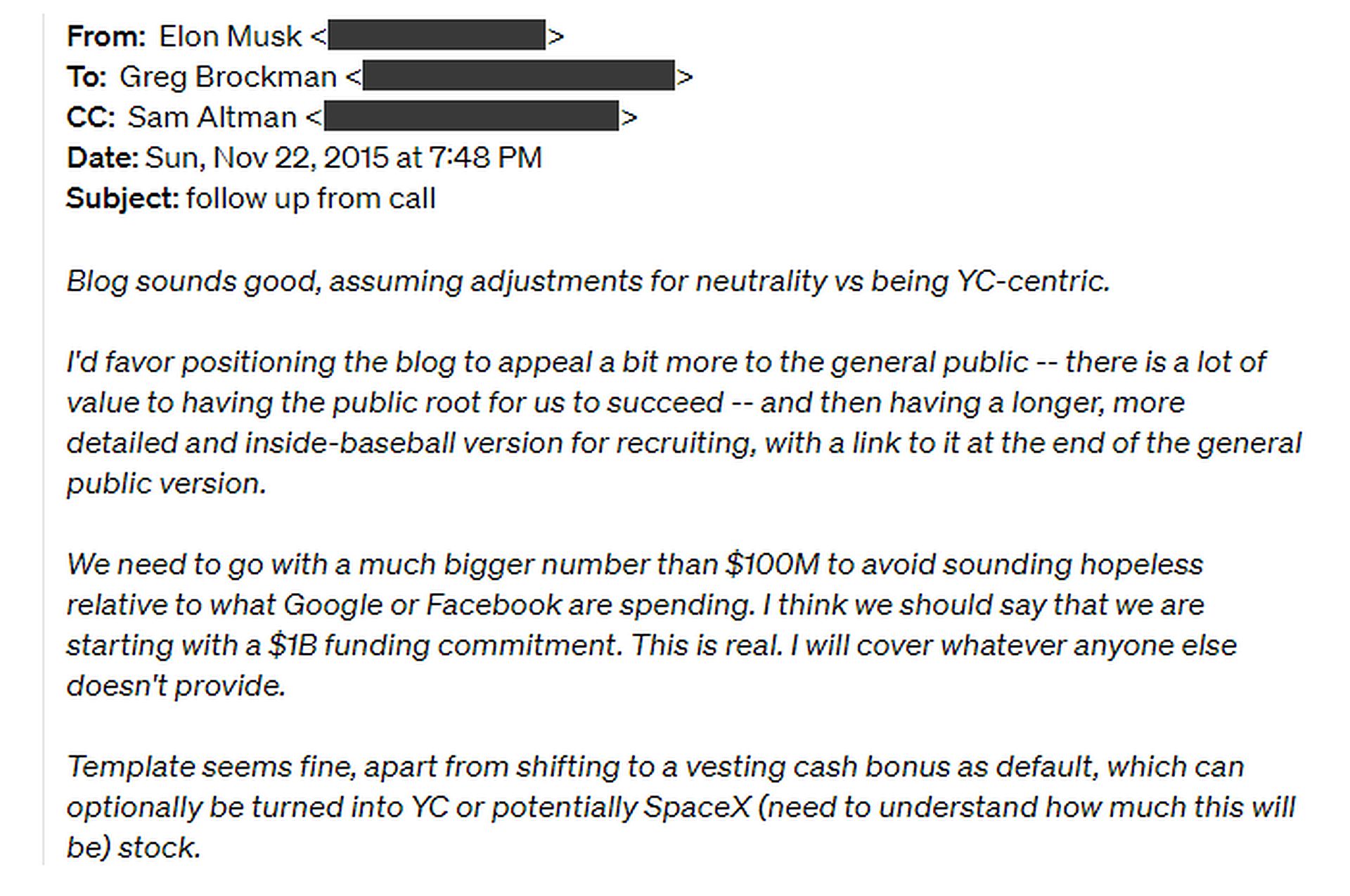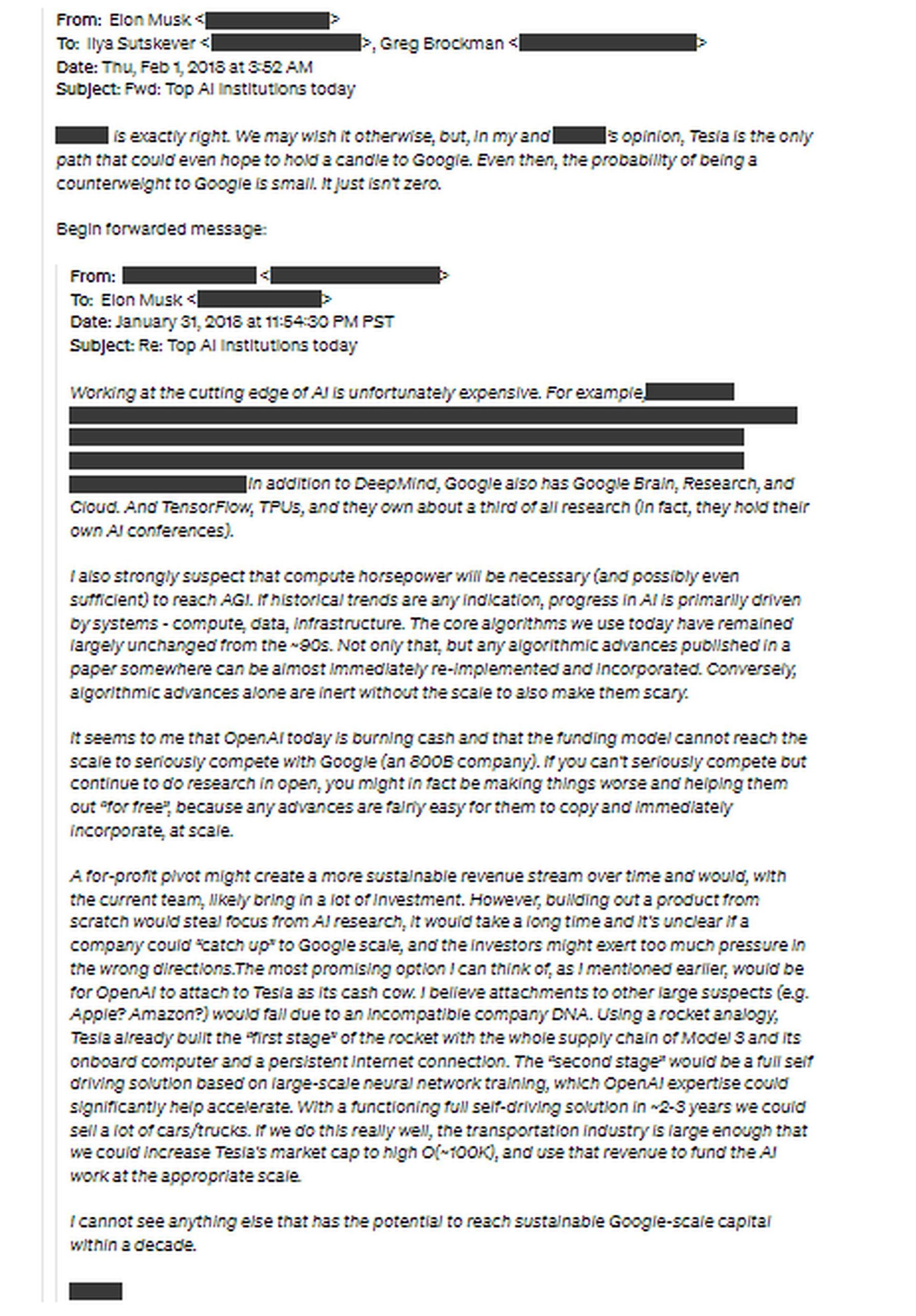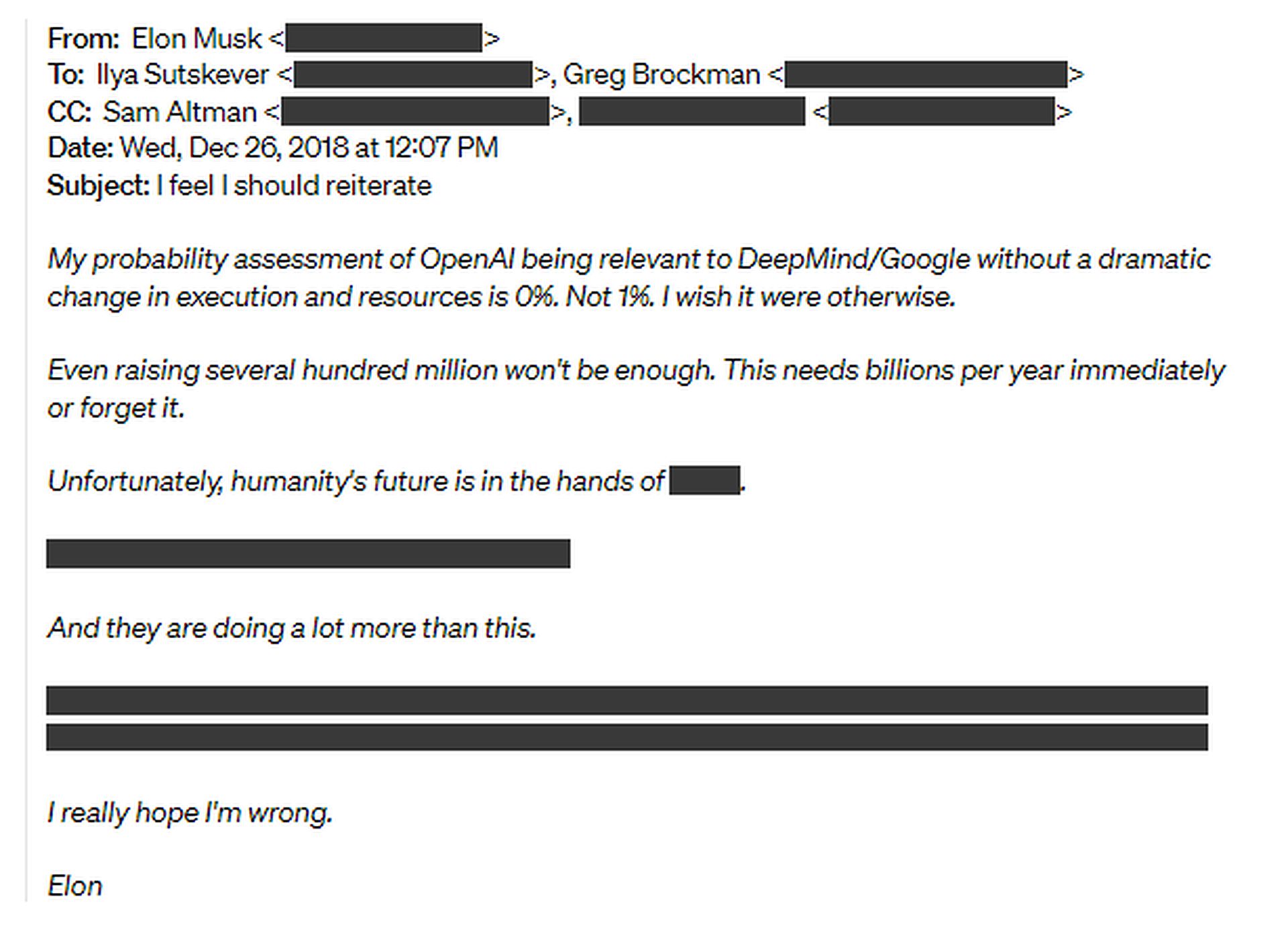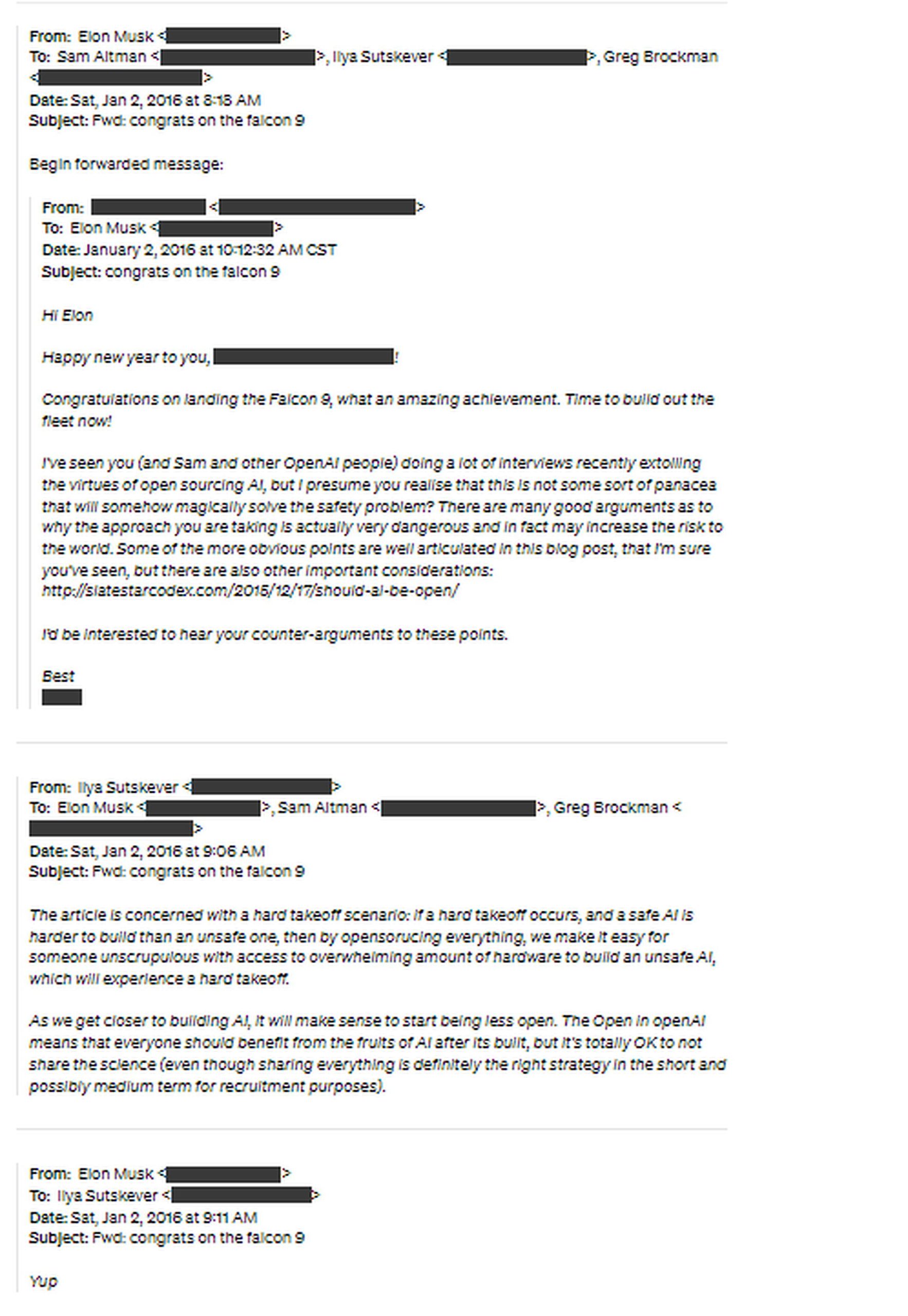The emails revealing Elon Musk’s talks with OpenAI aren’t just interesting—they’re also central to a legal fight between OpenAI vs Elon Musk.
- How did the fight start? Musk claims that OpenAI’s move to make money and partner with Microsoft goes against its original goal of making AI for everyone’s benefit. But OpenAI argues that these changes were needed to get the big bucks necessary for AI research.
- What is happening now? The emails are key evidence in the case, showing what Musk said and what OpenAI did. These emails to OpenAI focused on getting more public support, securing big funding, and staying competitive in AI. He suggested changing how OpenAI talks to the public, proposing a huge $1 billion in funding. Musk also doubted if OpenAI could keep up with big tech companies like Google. OpenAI says Musk wanted control over the organization and didn’t like it becoming a for-profit. They argue he didn’t give as much money as promised and left because he wanted control, not because he cared about OpenAI’s mission.
Want more details and to see all the emails? Keep reading and explore everything you need to know about the OpenAI vs Elon Musk round 2.

OpenAI vs Elon Musk: What did Elon Musk say to OpenAI?
In the disclosed emails, Elon Musk communicated several key points to OpenAI:
Email 1 (Nov 22, 2015)
- Musk suggests positioning OpenAI’s blog to appeal more to the general public.
- He advises using a larger funding commitment, suggesting $1 billion, to avoid sounding inadequate compared to companies like Google or Facebook.
- Musk mentions shifting to a vesting cash bonus as default, with the option to convert it into YC or potentially SpaceX stock.

Email 2 (Feb 1, 2018)
- Musk forwards a message discussing the challenges and expenses of working at the cutting edge of AI.
- He expresses doubt about OpenAI’s ability to compete with Google and suggests attaching OpenAI to Tesla as its “cash cow” to fund AI work.

Email 3 (Dec 26, 2018)
- Musk reiterates his skepticism about OpenAI’s relevance to DeepMind/Google without a dramatic change in execution and resources.
- He emphasizes the need for billions of dollars per year for OpenAI to be competitive.

Email 4 (Jan 2, 2016)
- Musk forwards a congratulatory message about SpaceX’s achievement.
- The forwarded message includes a link to a blog post questioning the efficacy and safety of open-sourcing AI.
- Ilya Sutskever suggests that as AI development progresses, it may make sense to be less open.
- Musk responds with a simple “Yup,” indicating his agreement.

These emails provide insights into Musk’s perspectives on OpenAI’s strategic direction, funding, and approach to AI development.
What does OpenAI think about that?
In response to Elon Musk’s lawsuit against OpenAI, the organization has made several claims about the disclosed emails:
- OpenAI asserts that Musk strongly desired control and influence over the organization. The emails reveal Musk’s advocacy for OpenAI to merge with Tesla or for him to have full control over the organization’s direction.
- OpenAI maintains that Musk was dissatisfied with the organization’s decision to transition into a for-profit entity, leading to his departure from the organization. Musk’s departure signaled his intention to initiate an AI project within Tesla, xAI, separate from OpenAI.
- Despite Musk’s claims of substantial financial support, the disclosed emails show that his actual financial contributions to OpenAI were significantly lower than initially promised. While Musk pledged up to $1 billion, OpenAI received less than $45 million from him, with other donors contributing over $90 million.
OpenAI contends that Musk’s departure and subsequent actions were driven by a desire for control and influence over AI development, rather than a commitment to OpenAI’s original mission of advancing AI for the benefit of humanity.
OpenAI vs Elon Musk: Why do these emails matter?
The disclosed emails between Elon Musk and OpenAI are significant as they reveal Musk’s desire for control over the organization, dissatisfaction with its transition to a for-profit entity, and discrepancies in his promised financial support. These emails offer insight into Musk’s strategic vision for AI development and could have legal implications for the ongoing dispute between Musk and OpenAI. Overall, they provide valuable context for understanding the dynamics between Musk and OpenAI and their implications for the future of AI development.
Featured image credit: Kerem Gülen/Midjourney





